…like learning how to drink water after the world has turned upside-down…
Read MorePhoto by Brighton Galvan
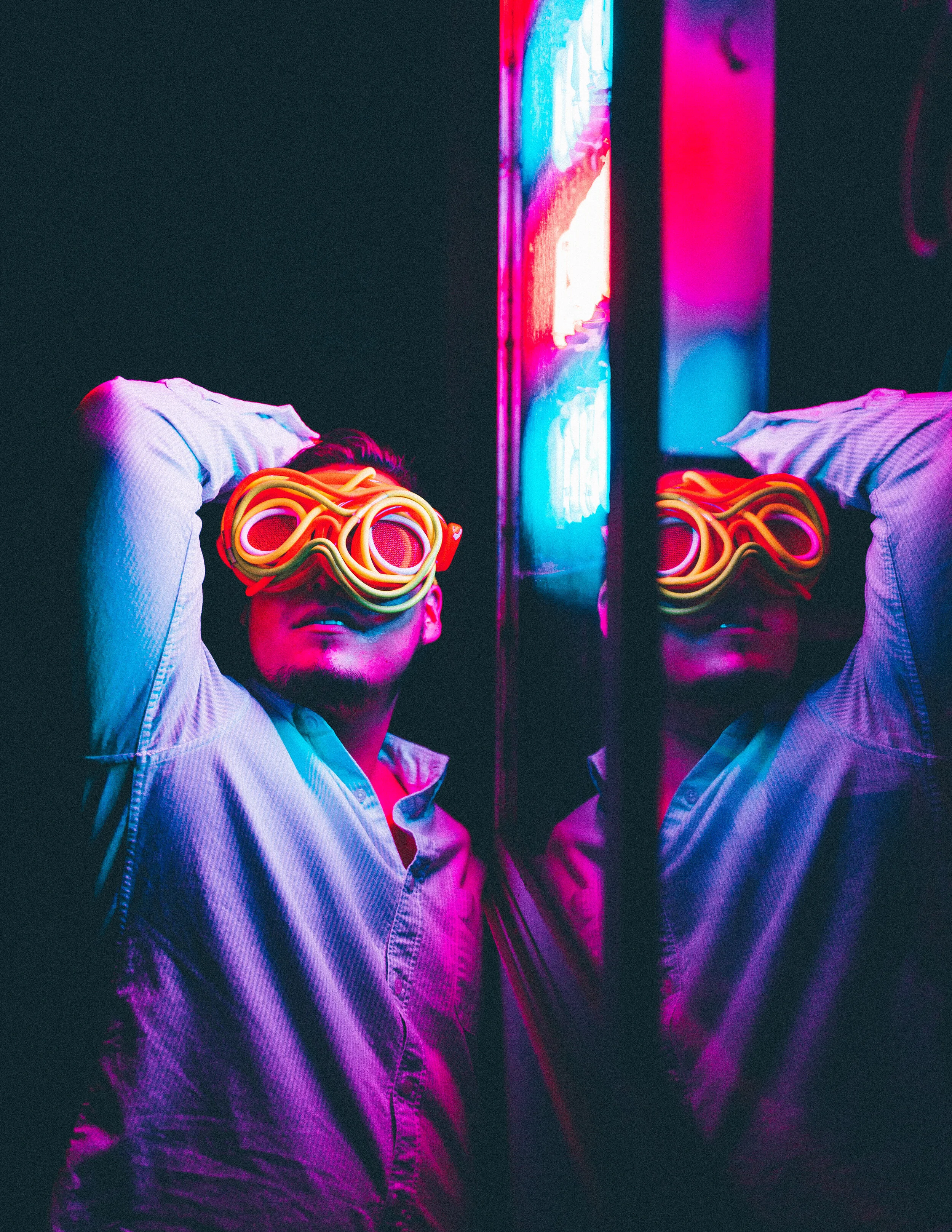
Photo by Brighton Galvan
…like learning how to drink water after the world has turned upside-down…
Read More
BY RACHEL FEDER
Editor’s Note: This is part of a serial novel, THE TURN, which will be published in installments at Luna Luna. This is Part 4. Read the rest here.
11.
I read and reread Jack’s message, cocooned under my comforter:
Fuck. Baxter, it’s not what you think. When can I see you?
I try to think of something to say. No way am I seeing him—Alison has strict pod protocols, plus I know Jack too well. He may be alone most of the time but there’s no way he’s gone all these months without bringing beautiful younger women back to the woods with him. The thought makes my stomach turn.a
I tuck my phone under my pillow and try to fall asleep. I don’t know how much time passes before I’m awakened by the soft, decided weight of a body landing on the bed.
“Baxter,” Quinn whispers, “it’s outside.”
“What’s outside?” I sit up, drowsy, touch her hair.
“The light. The light’s outside again.”
I push the curtains aside, and sure enough, there’s a small light moving across the yard. At least, it seems like it’s in the yard. I squint but I can’t make anything out.
“It looks like it’s right outside,” I tell Quinn, rubbing my eyes, “but it could be a headlamp out on the trail.”
“But why would somebody be hiking in the middle of the night?”
I shush her, shrug my shoulders, and draw the curtains. Walk her back upstairs, pour a cup of milk, and tuck her into bed.
Back downstairs, I step outside. The yard is empty, the light gone. Chill of autumn air across my cheek.
I crawl under the covers but I’m too rattled to fall asleep.
Around three in the morning I hear the front door open and close. I hear a car start.
12.
A fire has broken out due north of the house. I let the kids play in the yard while the smoke thickens, an amber pillar gathering in the distance. We’re just outside of the evacuation zone.
“Thank god,” Alison spits, slipping her hand into the back pocket of Seb’s Dockers. She doesn’t realize we have come inside.
After dinner, I sit on my bed watching ash fall in the yard and loading and reloading a map of the fire on my phone. Jack’s cabin is right in the middle of the action. Either he’s moved on, or he’s in danger.
I take a deep breath and text him. Are you OK?
Three blinking dots indicate that he’s composing a reply, but in the end, he doesn’t answer.
A knock at the door, firm. I open the door and Seb’s sapphire eyes catch mine. My breath catches in my throat despite myself. He pushes his sandy hair out of his eyes with a calloused hand, adjusts his tortoiseshell glasses.
“Alison is making brownie mix,” he says, his voice disconnected, eyes going soft on some focal point beyond me. I feel the tension dissipate. “She wants to know if you’re watching the debate with us.”
“I’ll come grab a brownie in a bit,” I say, and he’s already halfway up the stairs.
I pull my hair back, bite my lip, and text Jack again. Please, just tell me you’re safe. This time there’s no reply, not even the little dots.
Upstairs, the man in charge tells us the air is sparkling clean. We are reminded that hundreds of children have been separated from their parents, parents who cannot be found. The man who wants to be in charge calls this criminal.
Seb slides his arm around Alison, kisses the top of her head as she presses her temples. I’m behind the couch, leaning against the arch in the kitchen wall, eating the last bits of a brownie with my fingers, pressing the crumbs into one another to make bigger crumbs.
13.
I wake up with a start. I’ve slept in, and my arm is numb. Thebes’s head is pressed into it; he’s curled up against me. It’s funny—I don’t remember bringing him into my room.
Alison is phone banking at the dining room table, her computer open and her headphones in. She is trying to convince someone to vote for the man who wants to be in charge. She is saying things like “there was never any plan to reunite these kids with their parents” and “common decency” and “as a parent myself.” When I emerge, she winks at me.
“You two looked cozy,” she tells me quickly, then hops on her next call.
I set Thebes up in the highchair next to her, mix some rice cereal for him, and rush downstairs before Seb can see me without a bra on.
Back in my room, I pull the door tight, push back the curtains, open the window to let out a little of the stale air. I brush out my tangled hair and pull it into a bun, then peel off the pizza-print pajamas Jack bought me as a joke gift back when everything was different.
I catch a glimpse of myself in the full-length mirror on the back of the door. I watch my own brow furrow, my hands moving to my abdomen. I look down at my body, then back in the mirror, then down again.
My belly and hip are mottled with bruises. There’s a scratch on my left breast, and dried blood shimmers like rust on my shoulder and clavicle.
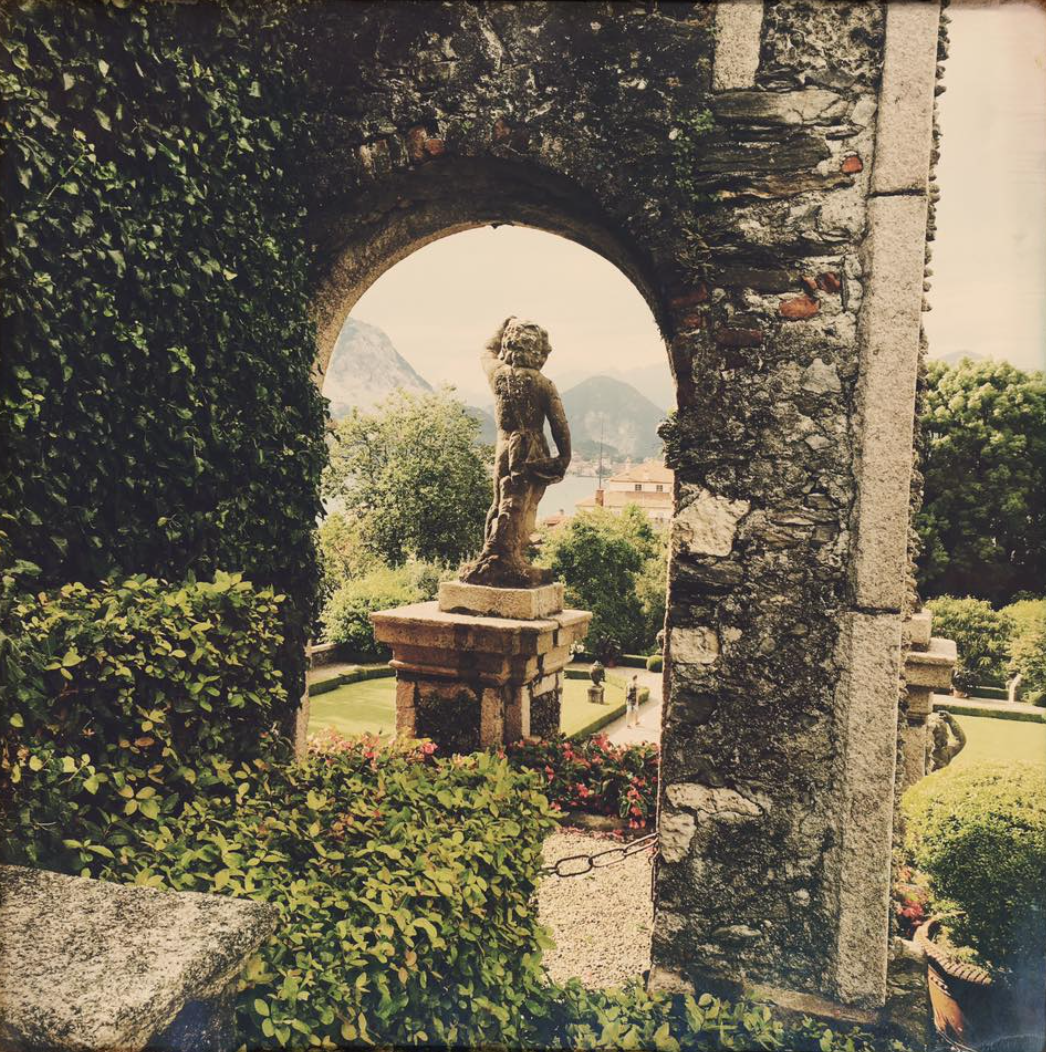
Photos by LISA MARIE BASILE
BY LISA MARIE BASILE
Editor’s Note: This was first published in Ritual Poetica

LISA MARIE BASILE
My grandmother — or nonna — was born Concetta Maria Lipari. She went by the name Mary, at least in the United States. She emigrated with her sisters, by sea, from Palermo, Sicily.
“I saw Mussolini’s men under the lemon trees,” she told me once when I was in my mid-twenties. It would be one of the last times I saw her, her wrinkled hands held in my father’s palms. I was too young, too distracted, and too naive, to ask her for more memories.
The idea of her living under that regime becomes more real to me as I grow older, wiser, and more interested in how identities and places change due to oppression and ideology. How Sicily was ruled and conquered more than anywhere else, how all that change, fear, culture, and belief exists in my blood today. How it shows up in America, too. The salt and all the tides of time. And how we reckon with it.
I also think of the lemons. Those beautiful bright gifts from heaven; how, years after her death, I’d step foot onto Italian soil to taste their sweetness, to wander limoncello-drunk down Duomo steps and through piazzas and little streets. I started in the North on Lago Maggiore and made my way down through Naples to the Amalfi Coast. I still haven’t tasted Palermo, drank of my own blood.
There is magic in nature. In salt and lemon and water. And I think my grandmother knew this, although she wouldn’t refer to it as such. She was a devout Catholic — she’d go to church every day, maybe twice per day. She and my grandfather attended the Saint Gianna Beretta Molla Parish down in South Jersey, and when I attended both of their funerals, with the same funereal rites — the songs and smoke and procession — I felt that same intoxication I did as a child. I was again reminded of the power of ritual. The institution and its rites are overwhelming, luminous, frightening, and not a bit complicated. That tendency toward ritual, toward the magic and mysticism of action and intent, is etched into me. The primordial Paganism that was rewritten with fear and shadow — and yet I found some comfort in it.
I recall my grandmother doing a few things that bewildered me as a younger person. First, she pulled out a box of her own long, thick black hair — darker than my own — and waved it over our cake as we sat eating. My aunt promptly said, “Mom — we can put that away?!” But it was something about preserving her youth, reclaiming her power, keeping memories, staying safe. It was, I suppose, a spell of sorts. She lived well into her 90s.

LISA MARIE BASILE
My other memories are of altars and shrines — over the television, on shelves, in corners covered in embroidered cloth, candles, sacred images, tiny statuettes (one of which I took for myself, or was given; I can’t remember), crucifixion triptychs, figurines, vials, relics, holy water collected in old Cola bottles, taped with pictures of Jesus or the saints. I can almost evoke the scent of their home. Perfume, something dry and old, incense, the smell of the air in South Jersey—a specific mix of something and trees. It has all become mythology to me.
And upon the altars were scrolls — dozens of tiny scrolls, etched with prayers and blessings, wishes, and words in both Sicilian and in English. She’d slip the scrolls in between statues of saints and figurines, roll them up under hanging rosaries. Once, when I knew it was the end, I stole two of the papers. I felt she would forgive me. I wanted something of hers, something handwritten. Something beautiful. As a writer, it felt only right. Or perhaps that’s me romanticizing everything.
My grandmother wasn’t a warm woman. She had seven children and dozens of grandchildren — and she brutally picked favorites. The fear of God led her to judgment and cruelty in many ways, and we were not close for many reasons. As a child, she didn’t hold me in her lap or stroke my hair or care for me. She visited, we made dishes and dishes of food, she told me I was too skinny, and she sent me scapulars and bottles of holy water. She also warned me about the Devil and told me ghost stories. They were violent and strange and they haunt me today — the man who killed himself in her basement. The child swinging on a chandelier. The old woman dressed in black who came in and out of the house.
These stories were always told or spoken about at family dinners. The consensus was that Grandma Mary had ‘lost her marbles,’ or always been a bit off, that perhaps having seven children had worn her down. Perhaps it was emigration and a loss of her culture, assimilation, her marriage, the wars, or mental health issues. I think it is a mix.
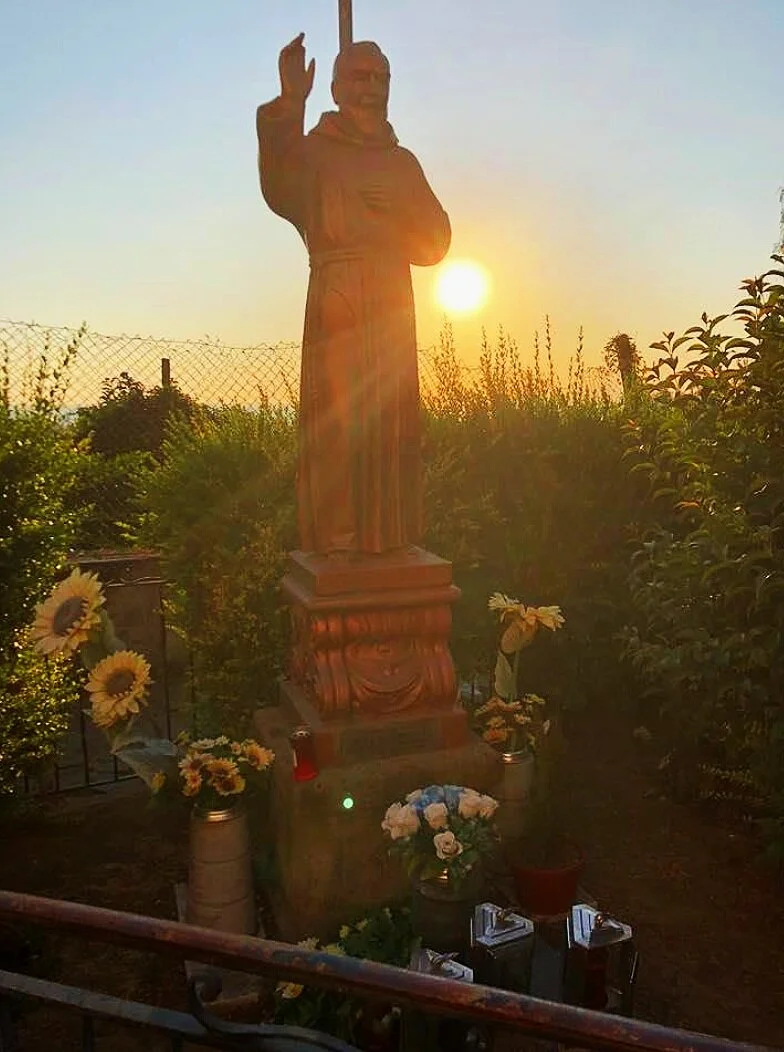
LISA MARIE BASILE
But I am not so sure it wasn’t something else, too. Something divine or ghastly. I don’t know what I think of the afterlife, but I know my grandmother was tuned in to something. Some otherness. Some else-ness. She seemed to have existed in a magical realist realm. It seemed only loosely tethered to here and now. Of course, only in retrospect can you see these truths for what they are.
My mother, who isn’t Sicilian, always says, “You’re just like your grandmother Mary.” I can’t tell if it’s a good thing, but it’s a potent thing. I do have her pale olive skin, her dark hair. We are both water signs.
In this way, intuiting the power of the word was passed down to me. I now use scrolls on my own altars. I have been doing it before I knew I was doing it — before I thought of myself as a word witch or an alchemist of letters or a poet, and before I believed in anything at all.
I have always kept journals and wrote letters and I would throw wishes into rivers at a child. The writing felt Important to me. Performing poems aloud felt like I was achieving something, casting something out. Exorcising, incanting, making, even if I didn’t have the words for it nor the conscious cognisance of intention and belief.
I think of my grandmother’s use of scrolls as a Benedicaria, a (purposefully?) vague and recent term for Southern Italian or Sicilian traditions of blessings. Benedicaria is at its core Catholic, yet it operates without explicit language, without much ado. In Campania, where I traveled alone last year, it’s translated into do a little holy thing (Fa Lu Santuccio).
In my limited understanding, it is an innate, religious understanding of things you just do — in your house or with your family or in your kitchen. It’s intuited, not fancy, and detached from glossaries and definitions. It’s not stregheria, either. It’s something different.
It’s sacramentals and olive oil and warding off the evil eye. Saving hair and writing scrolls. It isn’t magical, and she wouldn’t want to see it that way. It’s just what you do.
Ironically, given this entire post and its emphasis on the Word, what my grandmother was doing — and what I do — doesn’t have a specific name. I may call it magic or witchcraft, and she may have called it prayer (especially writing in her mother tongue, which was, in many ways, taken from her). But it’s just what feels natural.
Writing is part of who I am. It is my sacredness and my profanity. My prayer and my craft. My impact, my wound, and my reclamation. A product of a divinity or a call to it. An ancestral power that I’ve tapped into, but one that feels, somewhat, on loan to me. I am a recipient of a message. I am a vessel. Maybe it comes from a God, or a saint. Maybe it comes from history’s echoes, some sort of ancestral hum. Maybe it’s a gene. Maybe it is a gift. Or maybe not at all.
I will fill my own life, and this world, with a sea of letters, stained by lemon and sunlight, and hope that it washes something beautiful to shore. It’s just a holy little thing, writing. It creates something from nothing. It’s my meaning. It is my thank you to existence.
Lisa Marie Basile is the founding creative director of Luna Luna Magazine, & the author of a few books of poetry and nonfiction, including Light Magic for Dark Times and The Magical Writing Grimoire. She's written for or been featured in The New York Times, Entropy, Grimoire Magazine, Sabat Magazine, Giallo Lit, Catapult, The Atlas Review, Best American Experimental Writing, and more.
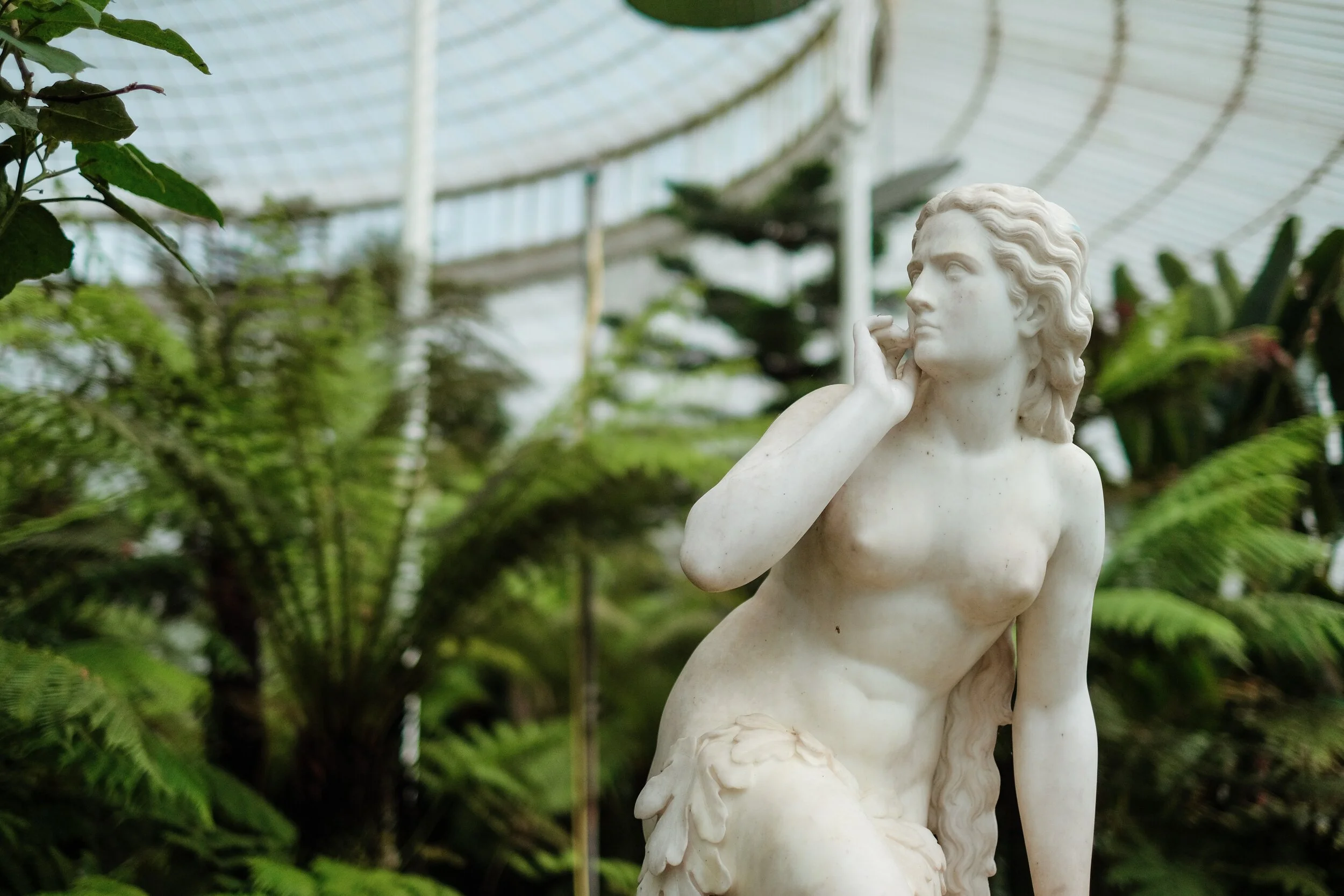
BY RENA MEDOW
Last night I felt like watching a thriller
taking in someone else’s damages for once.
I collect all your pale thank you’s
more transparent than a moon.
I prefer to think of others’ lives
lived in a series of miniature rooms
in a grand solar in some far away museum.
I am growing so tired of mine. I fall asleep alone and wake up alone,
but always another rustles around in the middle hours.
Their phone light not a lighthouse, no electroluminescent beacon home—
The trees without leaves service only northbound crows.
This is how it always ends, a love stripped bare and planted in
cold soil.
My mouth sings a song of itself, for itself, dying at its own pace.
I pull corpses from their roots and toss them to the curb.
Across the road, donkeys graze the pasture. In the road,
two yellow lines parallel extend towards nowhere, which
is near here, I hear. The tree I’m beneath is the descendant of trees.
That donkey there, the descendant of donkeys.
I forage for kindling with bugs in my hair,
a gymnasium of wet curls. It takes two matches to light the fire, six
in the rain. An illusion of self-sufficiency. Here, I only save
caterpillars from barn cats, not love from
thrown objects and raised voices.
No, even when I enter the orchard
to pick windfalls off the ground, and strain my worn
body, there are four bushels at the end.
Three to give back, one to take home. If only the heart could get a quarter
of what it gives, to munch on later. Worm and all.
The trumpet of day flat-tones against the trees,
and I savor this bland life, forever a matter of too much or too little.
Rena Medow attended the New School for poetry, Emily Carr University for painting and the Langara Certificate program for Journalism. Her first poetry chapbook, "I Have been Packing This Suitcase All My Life So Why Is It Empty?" came out in the fall of 2017 from Vegetarian Alcoholic Press. Her poems, essays, articles and illustrations have been featured in a variety of places, including The Vancouver Sun, Langara Voice, VICE, LunaLuna Magazine and The Minetta Review.
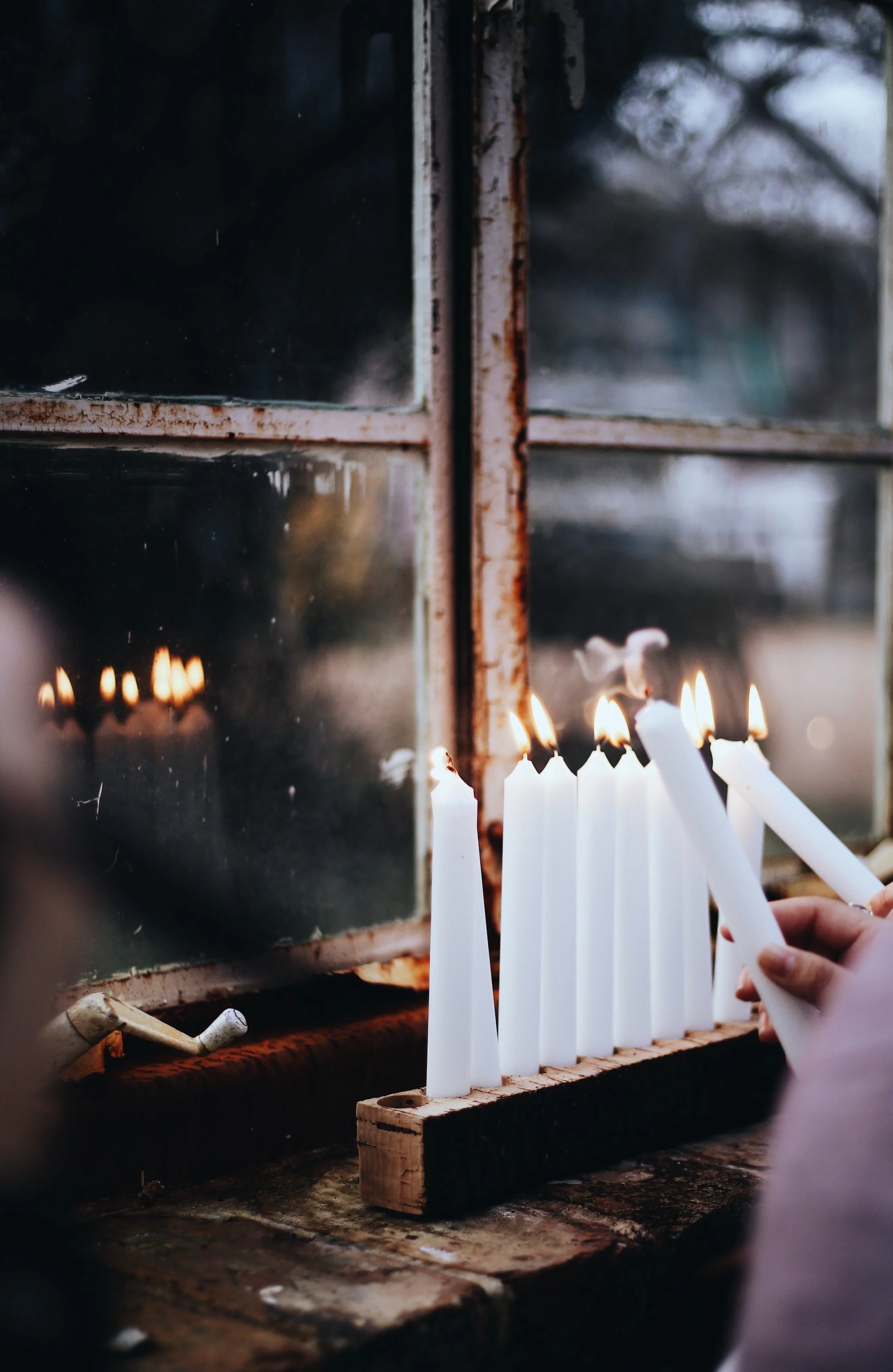
Burning just the tip of a newspaper in an ear to relieve pain. Burying tiny sculptures of santos in the front yard to ward off evil spirits. Limpias from a shaman when hope is finite. I no longer live where I grew up—there’s no neighborhood curandera to visit me.
Read More
By Adrian Ernesto Cepeda
BY ADRIAN ERNESTO CEPEDA
“I need a mother. I need some older, wiser being to cry to. I talk to God, but the sky is empty.”
― Sylvia Plath
I know many are going to ask how did I get here? Emotionally, physically sick with mental health issues. Some may ask how can you have depression when you have published three acclaimed poetry collections? My life changed on November 11, 2017. Mi Mami died, four months before my first poetry collection Flashes and Verses…Becoming Attractions was published in March 2018 by Unsolicited Press. My mother was my number one supporter of mi poesia, and my drive to be published. When no one else did, she believed and saw the potential of my life’s calling, mi Mami was the one who gave me the gift of la poesía. She has always been my number one champion. When I was working as a retail servant, at every bookstore and record shop, you could imagine, she believed that I was more than a bookseller and I had poetry that needed to expressed, written and shared with the world. I would send her poemas for her cumpleaños and navidad. She called them gifts from my Corazon. Mami was more than my motivational compass, it was her belief in my calling to become a published poeta that focused every volume of my creative light. `
After she passed away, I realize now that I was in denial, for three years. Her death overshadowed all my publication successes. Since 2017, I spent this time promoting my three poetry books, especially my latest La Belle Ajar, a collection of cento poems inspired by Sylvia Plath’s 1963 novel and focusing on my career as a published poet. Instead of facing all the complex emotions of mourning the death of mi Mami, I compartmentalized these feelings, I was not ready to face, and worked on trying to make a name for myself in the publishing world. Foolishly I actually believed that publishing these books would somehow lessen the pain and make me happy. The opposite happened. With every book, positive review and acclaim from my community of poets and writers, something was missing. There was this huge gap of grief in my life that I was trying to fill with my success as a published poet.
So, I went looking for mother figures to try to replace the hole that was left after mi Mami died. But that just caused even more pain and confusion. While I was trying to help mi familia settle mi Mami’s estate, I became sick from not facing any of the issues of my mother’s death. This is when I rediscovered Sylvia Plath. For over a year she became my surrogate Mother. I turned to her words, her poems, her stories, her diaries, her quotes for guidance and for a while, her supernatural support helped me. Then one day, whilst I was reading one of the many biographies, from the plethora of books I bought to learn from mi Madre from beyond, towards the end of this bio I came to the part where Plath dies. And even though in my conscious mind I knew that Plath had taken her life on February 11, 1963, the part of me that was needing a mother figure was devastated. It felt like I had lost another madre and this was the beginning of where my story starts to turn towards my health crisis.
I should’ve known when I was reading Sylvia’s poem, “The Morning Song” when she wrote:
I’m no more your mother
Than the cloud that distills a mirror to reflect its own slow
Effacement at the wind’s hand.
It was obvious. It felt like Plath was speaking to me, especially at the end of the poem:
Whitens and swallows its dull stars. And now you try
Your handful of notes;
The clear vowels rise like balloons.
Towards the end of the summer of the pandemic, the balloon that held the grief for the death of mi Mami popped. Just like Sylvia Plath once wrote: “See, the darkness is leaking from the cracks. I cannot contain it. I cannot contain my life.” Since 2017, I had avoided facing any of the sorrow of her passing and it manifested in ailments, illnesses and sickness that would take over my body. Horrible acid reflux, hay fever, whopping cough, recurring influenzas, crippling back, leg and muscle spasms along with outbreaks of shingles was my body telling me I was hurting emotionally from the inside. It was the loss of mi Mami that I did not want to face. All of this pain was manifesting in all of these symptoms. I was missing her and was afraid to admit it. For years I would call mi Mami on the telephone and if I were stressed out, worried or sick, her words, advice or just hearing my mother’s voice would make me feel better. Since she died, I had no one to connect with, I missed mi Mami and I was desperately trying to find someone or some mother figure to take her place. This is why I turned to Sylvia Plath. But after I finished my book La Belle Ajar, I realize now I was missing mi Mami more. My condition worsened during the shutdown. I was suffering from daily debilitating anxiety attacks and I know I was not the only one. Plath said it best when she wrote in her journal: “I have much to live for, yet unaccountably I am sick and sad.” I talked to and know of so many poets and writers who were dealing with recurring traumas, depression and grief during the pandemic and I was no different. It wasn’t just the emotions of her grief, there were so many reasons for my sicknesses. Sylvia Plath perfectly described my physical symptoms that I was battling on a daily basis when she described:
The sickness rolled through me in great waves. After each wave it would fade away and leave me limp as a wet leaf and shivering all over and then I would feel it rising up in me again, and the glittering white torture chamber tiles under my feet and over my head and all four sides closed in and squeezed me to pieces.
More than rock bottom, physically and emotionally every day worsened, I felt like I was in pieces. My panic attacks worsened my daily medications that I was taking for my health issues stopped working, my anxiety went out of control, I couldn’t swallow food nor eat. And worse, I had insomnia, the worst of my life. I was emotionally and physically sick. But I was in denial believing that my suffering was physical and not mental like Plath once wrote:
I wanted to tell her that if only something were wrong with my body it would be fine, I would rather have anything wrong with my body than something wrong with my head, but the idea seemed so involved and wearisome that I didn’t say anything. I only burrowed down further in the bed.
I felt the same way as Plath. It had to be a physical ailment that could be cured by a visit to my primary care physician but as the days rolled on, my condition became critical. Towards the third week of another month fighting this illness when, literally on my hands and knees weeping, I realized that I needed to ask for help for my mental illness.
It’s not an accident that I chose Plath as my surrogate madre. She was a reflection of the issues that I had kept simmering inside for years. When I finally found help, the right medication, and started talking to a therapist, the darkness was slowly starting to subside. The insomnia felt like a curse that was haunting me. The lack of sleep was affecting my creativity, my appetite and I felt lost alone in my exhausted and paranoid thoughts. It wasn’t till I rediscovered my creative light again when I reconnected with mi Mami, writing her letters, that it all started to make sense to me. The therapy, the medication and my daily correspondence with my Mami is what brought me back from the dark and insomnia that had been haunting me during the pandemic. Plath explained it best when she wrote: “I am terrified by this dark thing that sleeps in me.” That sleeps in me; All day I feel its soft, feathery turnings, its malignity.” I was afraid to face any of the emotions of mi Mami’s death. Looking back if I had written these letters during the period when I was struggling with promoting my poetry books, I may have faced some of these issues in a healthier way instead of burying them inside my subconscious.
Alas like my Lazarus lady from beyond, I felt my own rebirth as Plath wrote:
Comeback in broad day
To the same place, the same face, the same brute
Amused shout:
‘A miracle!’
That knocks me out.
There is a charge
This is how it is slowly starting to feel like. Like I am being recharged and resurrected into a new way of seeing life. And although I realize that Sylvia’s charge was electroshock therapy, my charge was more symbolic, of realizing my own inner chemical imbalance was affecting the rest of my living body.
It was no accident that I connected with Plath mi Madre from beyond. Lady Lazarus became a mirror of the pain that I was beginning to feel that I finally unleashed after three years of not being ready to experience the pain of mi Mami’s death.
For the eyeing of my scars, there is a charge
For the hearing of my heart——
It really goes.
There were scars, dark bags under my eyes and I didn’t want to look in the mirror. My heart would beat so fast because of my anxiety and it would go and thunder on causing my insomnia to keep me awake.
Finally, there was a charge. My charge was my medication, the right one that reconnected me to mi Mami and this led to a resurgence in my craft, my writing, my calling that I was put here to share my life through my canvas on the page.
And there is a charge, a very large charge
For a word or a touch […]
I am your opus,
I am your valuable,
I wish I could thank Sylvia. Although she had a very complicated relationship with the legacy of her dead father which she explored in some of her most famous poems like “Daddy,” sadly, Plath never found any closure over the death of her father and I did not want to follow in the painful legacy that she poured into her poetry. Although, we both eventually had different paths to our dead parents, I want to thank her surrogate guidance eventually led me back to mi Mami. Because of this, I would say muchas gracias for her words, poems and guidance helped me reunite with la memoria of my own Mami. For making me see that I am valuable and for helping me to reconnect with mi Mami three years after her death. My opus is the collection of poems, Speaking con su Sombra, that were written for and inspired by Mami. For years, I couldn’t face looking at this manuscript because I was afraid of dealing with the issues of grief and pain from mi Mami’s death. But Sylvia, was the surrogate Madre from beyond that I needed at the time. Plath led me to where I needed to be. Like Sylvia, I crawled back home, “beaten, defeated. But not as long as I can make [poems and prose] beauty out of sorrow,” it will be worth this long full circle journey to reconnect with my own blood and flesh, from the other side. This inner voyage with Sylvia Plath brought me home with Mi Mami. Sylvia guided me by showing me how to treasure the imperfect inspiration masterpiece that is my writing vida like the lines I wrote in the seventh poem of La Belle Ajar:
I lay in bed
My ache
would rouse me, peaceful
fingers, cheerful I came
fumbling the blur of tenderness
breathing exhausted, I stared….
My goal is to go further than the explorations I created with Plath on La Belle Ajar write on. Because I am reconnecting with mi Mami, it feels like she will be by my side as I go through the final stages of revising and editing the collection of poems, Speaking con su Sombra, that she inspired. Thanks to mi Mami’s guidance, I am rediscovering emotions in poems that I will explore on the canvas in each volume of my living breathing page.
Adrian Ernesto Cepeda is the author of the full-length poetry collection Flashes & Verses… Becoming Attractions from Unsolicited Press, and the poetry chapbook So Many Flowers, So Little Time from Red Mare Press. Between the Spine is a collection of erotic love poems published with Picture Show Press and La Belle Ajar, a collection of cento poems inspired by Sylvia Plath’s 1963 novel, to be published in 2020 by CLASH Books.
His poetry has been featured in Cultural Weekly, Frontier Poetry, Yes, Poetry, 24Hr Neon Magazine, Red Wolf Editions, poeticdiversity, The Wild Word, The Fem, Pussy Magic Press, Tiferet Journal, Rigorous, Palette Poetry, Rogue Agent Journal, Tin Lunchbox Review, Rhythm & Bones Lit, Anti-Heroin Chic, Neon Mariposa Magazine, The Yellow Chair Review and Lunch Ticket’s Special Issue: Celebrating 20 Years of Antioch University Los Angeles MFA in Creative Writing.
Adrian is an LA Poet who has a BA from the University of Texas at San Antonio and he is also a graduate of the MFA program at Antioch University in Los Angeles where he lives with his wife and their cat Woody Gold
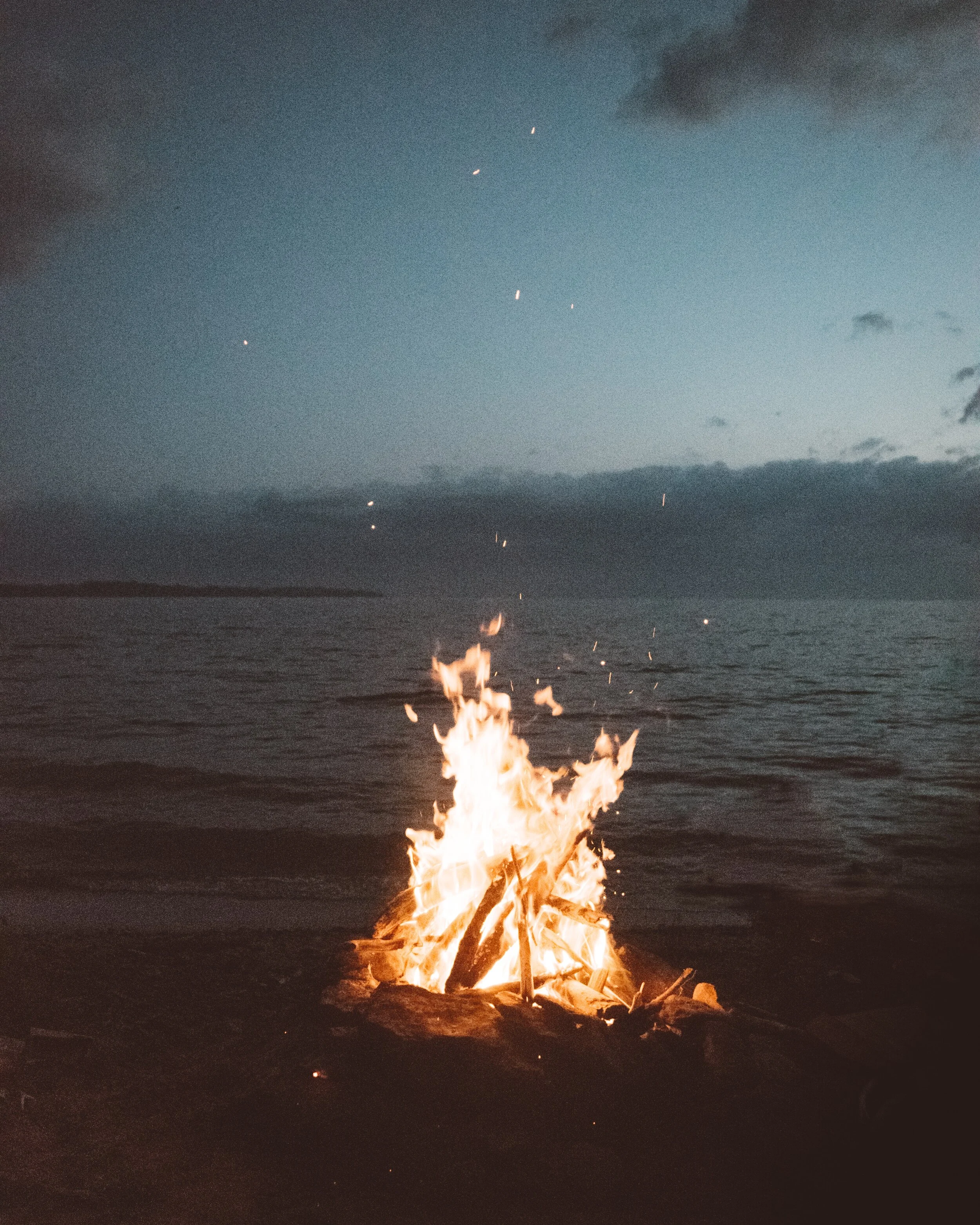
BY NOEME GRACE C. TABOR-FARJANI
The mountain beckons so does this task at hand, the work waiting and waiting. The mountain is not far to behold but it calls, so leave my slippers and staff, and stare at the fire that turns air into tablets. I pray, please turn my breathing into ink.
I only feel the malty mint, the days gone by are back. The barefoot hours, stage the dance of trees in front of me. And I think: they are still there, the earth’s still here.
There are no memories of wind, but there is one that blows desire, wrapped in fresh silence. Almost a fulfillment of longing of some unknown home, or romance, or power. Vague as the clouds, gray and shapeless, moving into uncertain spaces, telling no stories but whispers the quiet moments.
I no more count the hours for nameless acts. It’s just air blowing cold. It’s just rain that looks like it will fall. It’s just what they call a gloomy day, perfect for a song and maybe more of the wonder of the eternal now.
In stillness, solitude, and surrender, all of earth will sing with my desire.
The road hides from a busy highway. Those who look not for magic is lost. Trees lined, bowing to majestic dusty pathway. Those who look not for magic won’t see the silver and gold in the cobblestones. The disappearing grass, playing hide and seek with the skies.
This season, we made fires from branches who ask to make love with earth. Those who seek not magic won’t hear the stories of the clouds. Surrounded by the sea, the sky, the mountains. I sit by the wall and sing my songs until Faith cascades down to the stillness of sand, letting go of waves.
Those who seek no magic won’t ever be still, won’t dance...
See the sun, the sky, the sand, the sea, the breeze, the trees. Only they know our spells, the secret of our days. The roof is a bed the stars shelter many dreams.
Those who look not for magic is lost.
I.
Steady the hand as not to drip the soup from that spoon: it has battled long enough in the wild, held a sword, a stone, an arrow, a knife. Now it is time to be a wife.
Soothe the trembling that wants to travel through your skin. To kill is not a sin.
Steady the hands that are unsure. If it wants more of a fill: here’s some meat, roasted well some seconds for some sweets? Does he really want to eat?
Steady the tremors from your hands as they run to your heart. The images of battles on your tables: Kitchen where spices scatter, the meals eaten by whiners, the cluttered desk, the empty screen. Maybe you let an enemy in?
Steady the thoughts and capture them. You do not divide to rule and win. You serve, you love, you write. You feed those with trembling hands. You clean the cluttered tables. You fold the fitted sheets. You fill the blank white sheets.
I tell him, let’s kill this. To kill is not a sin.
II.
When their visit wake you up
at 4, you barely have enough sleep.
They gear you up for a battle
that is not yours
and you try not to engage.
There you are with an armor
that drags you down,
a shield you can barely lift.
And the questions come
like a colony of red ants,
a swarm of wasps in your heart.
What do they call them?
●
The food is ready,
My feet are up on the porch bench
We are waiting for Iftar.
The past 29 nights
are dizzying movements
in the kitchen.
But my body is not tired.
The summer rains
are a miracle tied to the curse
of the season.
I watch the birds play
under the drizzle,
filtered by dusk.
I thought birds hide
for cover when it rains.
Twilight nears.
The earth seem content
with the caress of showers.
I bath myself in the breath
of the sky and trees.
A long time has passed,
Have I been missed
By these creatures of mist.
The Earth quietly blankets
herself, settling
in the bed of night.
The way I embrace a faith
foreign from mine.
Iftar is here.
Noeme Grace C. Tabor-Farjani has authored Letters from Libya, a chapbook of short memoirs about her family's escape from the Second Libyan Civil War in 2014. Her works have recently appeared in Your Dream Journal and Global Poemic and forthcoming in Fahmidan Journal and Rogue Agent. In 2018, she successfully defended her PhD dissertation in creative writing pedagogy. In between gardening and yoga, she teaches literature and humanities at the high school level in the Philippines. She is currently working on a chapbook of poems on spirituality and the body.
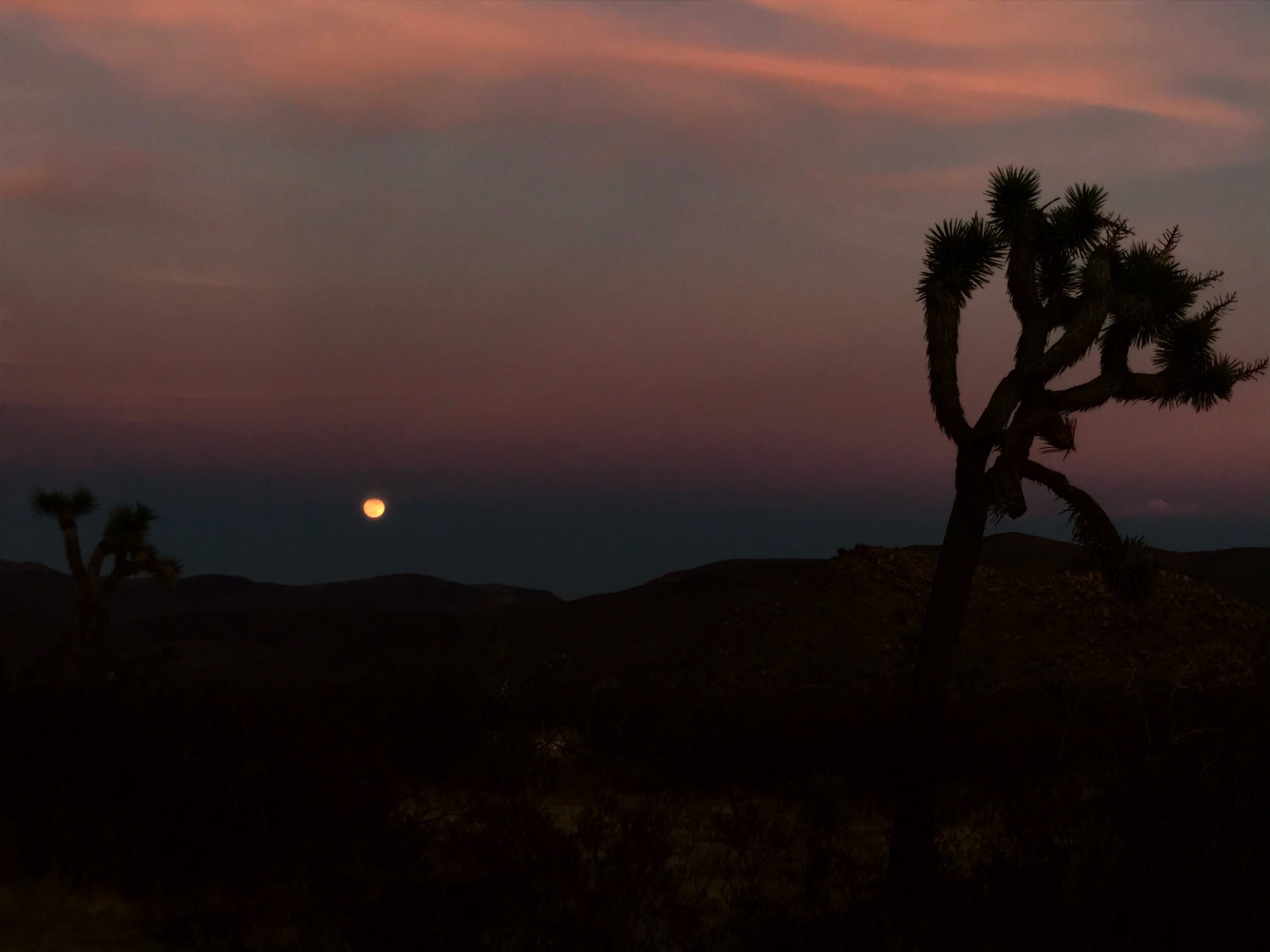
Photo: Ingrid M. Calderon-Collins
demons
—Summer, is in the high winds—
grapes and graves pendulate
hopeless \ drained
swooping men into their elixir,
women / bee-stung / swollen
stolen
glances,
sanative—
venom/
what’s yesterday stays,
an onset
of what the night brings—
sit here, sloppy and free
eat
drink
unfasten
run from your shadow,
a beast of your pastselves bred to breed more of what mauls,
leave it to die.
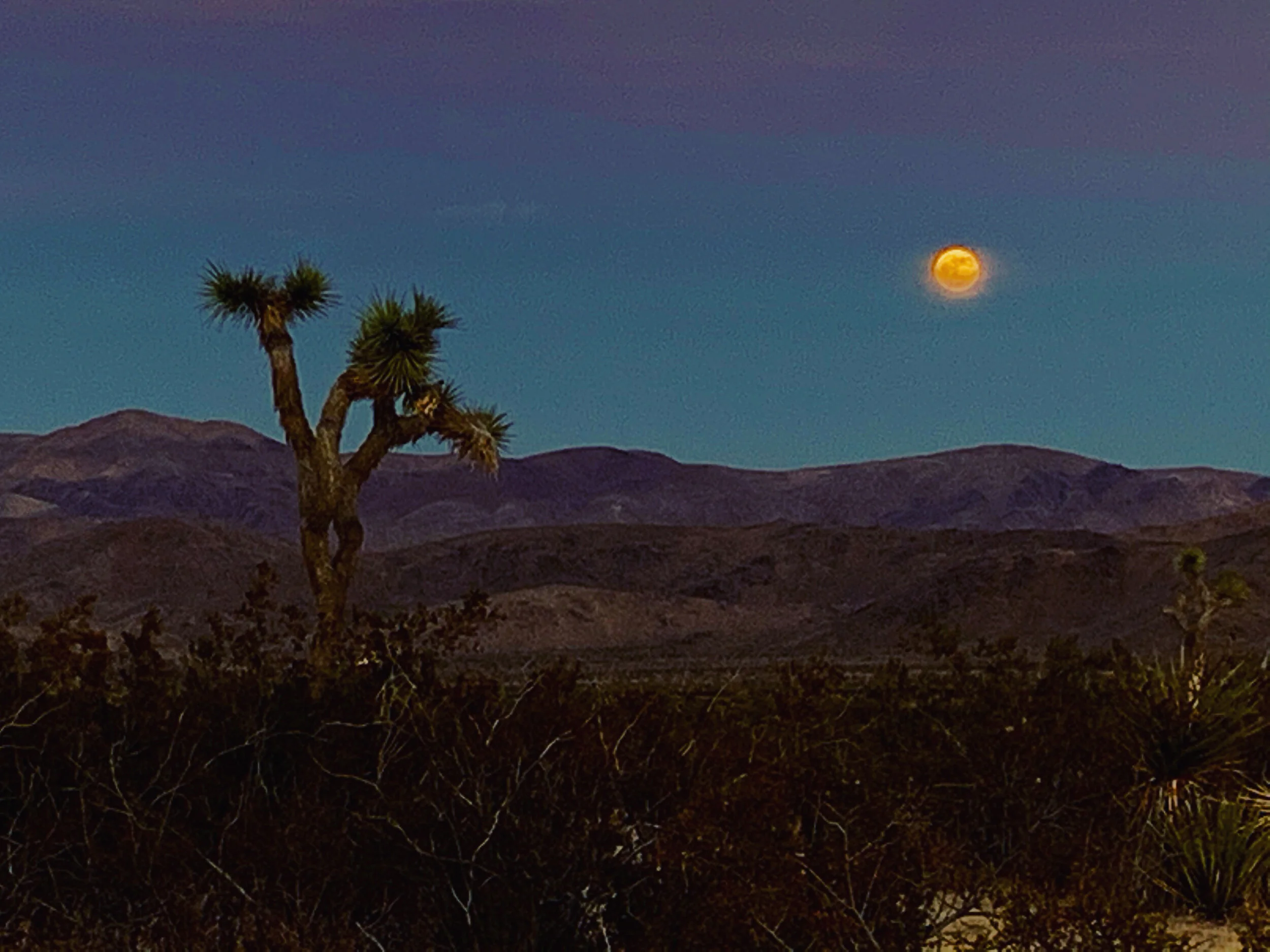
The point of daffodils 🌼
I’m sorry
I’m sorry
I’m sorry
I yawned love in all the shades of pastel you own/
I want to paint your infinite so spread your legs,
Show the world how deep you go, you said—
There is not enough paint or sky to hold me, I sigh/
He laughs as he begins to sprout his wings
It’s all in numbers
How we end and how we begin
An angel laughs—but he sings
I’m sorry
I’m sorry
I’m sorry
Apologies are endless and unnecessary
if you’ve already learned that forgiveness can be silent
I’ve seen
You’ve seen a chiseled hand sculpt you into something/mouth gaped open
Not to speak
But to hold the plague of his snake
Skid slink into my feet
My brain/
A music box of screams
Tucked neatly where I bled
I carry traces of my poetry in the morning
as I eat
And in the dusk when I’m asleep
I salivate for food as if I’m starving
Full belly tells a different story
I wonder if the lessons that you taught me come in handy
For when I want love to see me in my shadow
For when I’m dressed up like a clown with rainbows of beige and browns
I don’t eat fruit because it feels too good
Sugar is the same as when I cry and smile and taste the
salt lake house you left me in
I am an old one because you the ancient were inside me
You implanted all your heart and now whenever I love
I wonder if you love it too
I’ve regrown all my teeth
I’ve shoveled out the dirt
I’ve planted all new trees
I am a garden in full bruise

Artist’s Statement on the photos: The pictures are from the Full Moon on December 11, 2019. They were taken inside Joshua Tree National Park.
Ingrid M. Calderon-Collins is an immigrant from El Salvador. Her work has been featured in Thimble Literary Magazine, Rabid Oak, Moonchild Magazine, and FIVE:2:ONE amid others. She was the hostess of a monthly poetry reading series, “They’re Just Words” featuring poets from all over L.A. County from 2017-2019. Currently, she runs a literary magazine called “RESURRECTION mag,” where she encourages poets, artists and photographers to show the world their joys and their sorrows. She is the author of thirteen books. She lives in Los Angeles, CA with her husband, painter John Collins.

Photo: Joanna C. Valente
Joanna C. Valente is a human who lives in Brooklyn, New York. They are the author of Sirs & Madams, The Gods Are Dead, Marys of the Sea, Sexting Ghosts, Xenos, No(body), #Survivor (The Operating System, 2020), and Killer Bob: A Love Story (Vegetarian Alcoholic Press, 2021). They are the editor of A Shadow Map: Writing by Survivors of Sexual Assault and the illustrator of Dead Tongue (Yes Poetry, 2020). They received their MFA in writing at Sarah Lawrence College, and Joanna is the founder of Yes Poetry and the senior managing editor for Luna Luna Magazine.
Read More
BY OLAITAN HUMBLE
& then we watch as our new year prayers morph into
cries & wails of lost loved ones—the ones who
used to hold our tongues together with fine threads of their
sanity but what can a prayer do than to cause
coincidences to or not to happen? a bird's flight
draws my mother to the sky but it is dangerous out there
now she turns to her gadget to fuel her fear with pictures
painted by __________ here in a multiverse where
help is nigh where nature is not buried under whispers of
different languages where paradise is a few blocks away
from home where loving is a civil responsibility where the
night sky still casts a shadow
Here is where we build castles in the air // we start
by calling our forefathers bastards for keeping
us away from a world of distorted songs. We were
told that there is a paradise below our soil // an
unnoticed picture on the map of our country by the
other side of the wall they built before eloping
with their shadows into deep waters // somewhere
along the contour lines on our map there is an
unheard voice calling for the wrath of the gods.
There is a letter waiting at a post office written
by a sender that never was // those who were born
dead & buried into the night sky smiling.
& all the nights letters like this are read // woe
in form of killer bees pinch our wrist & then
we say the same words our fathers did on the day
they lost the fight to the motherland & died // & now
we wake up to listen to the irregular rhythm of the cries we
chant as anthem // we listen as they blow with the cold
winds illustrated on our map within a landscape.
Olaitan Humble is a Nigerian poet and pacifist who likes to collect quotations and astrophotos. He won the People's Choice Award at EW Poetry Prize Awards 2020, March edition of Loudthotz Poetry Open Reading 2020 and JustDeen Poetry Contest. Poetry Editor at Invincible Quill Magazine, his works are featured and/or are forthcoming in Dreich, Crêpe & Penn, Wine Cellar Press, The B'K, Words & Whispers, Giallo, AGNG Mag, CỌ́N-SCÌÒ, Periwinkle, Doubleback Review, The African Writers Review, Ngiga Review, Cultural Weekly, EroGospel, Konya ShamsRumi, POEMIFY, the QuillS, The Wanderlust Literary Journal, First Gong Anthology and Boys Are Not Stones Anthology II, among others. He is a Features Editor at Urban Central and tweets @olaitanhumble.
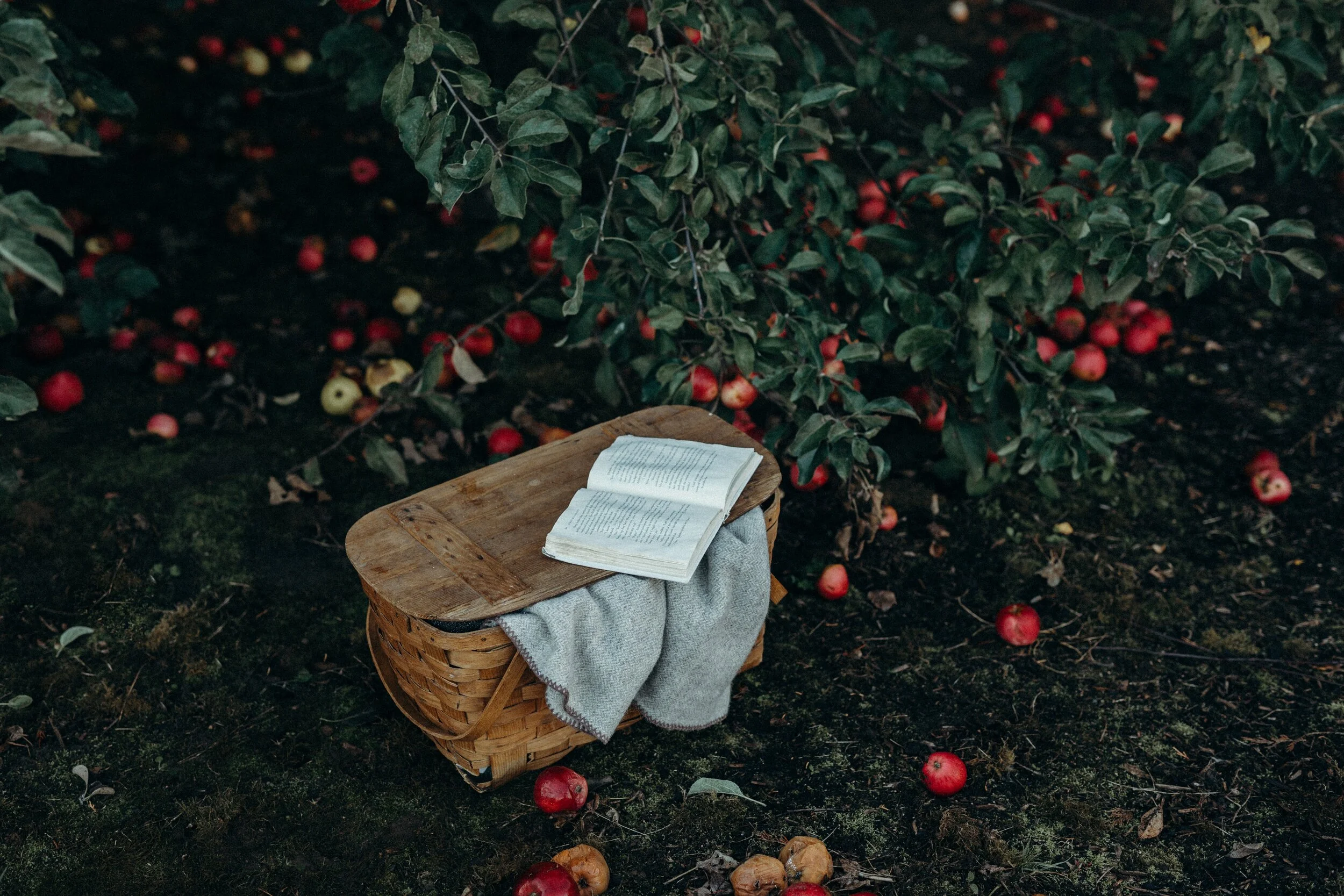
BY PEG ALOI
The apples my father brought were large
perfect, juicy, crunchy and sweet
red, delicious
in purple cardboard egg carton boxes
that he bought for clients
his generosity a beacon
amidst our constant struggles to make ends meet.
The apples my mother made pies with were grasshopper green
big and round, super tart, Northern Spy
baked to mushy sweetness
spiced with cinnamon and nutmeg
filling the afternoon with a warm fragrance of love and care
that rose above
the damp lingering sadness and fear of the morning.
The apples we picked in the local orchard
by the horse farm that smelled faintly of manure
and strongly of fresh-cut hay
were burnished by sunshine
red and green and yellow
Macintosh, Golden Delicious, Jonathan, Cortland
tumbled into bushel baskets
riding home in the back of the station wagon
like treasure, like gold
shining autumn days
when we learned what farms were
where food came from
what happiness was made of.
The apples my witchcraft told me of
were shining like round red planets
cosmic throbbing pomes
the color of blood and roses
their plump poisonous seeds bursting
with fairy tales, myths, secrets, curses and wishes
their crisp, fragrant, juicy flesh
tasting of this moment, and of immortality.
Peg Aloi is a freelance writer, film & TV critic, professional gardener, traditional singer, practicing witch, and lover of apples and orchards. Her book The Witching Hour: How Witchcraft Enchanted Popular Culture, will come out in 2021.

In this moment, with yellow and brown leaves, with fall’s whisper, I feel like anything could happen. I could be anything.
Read More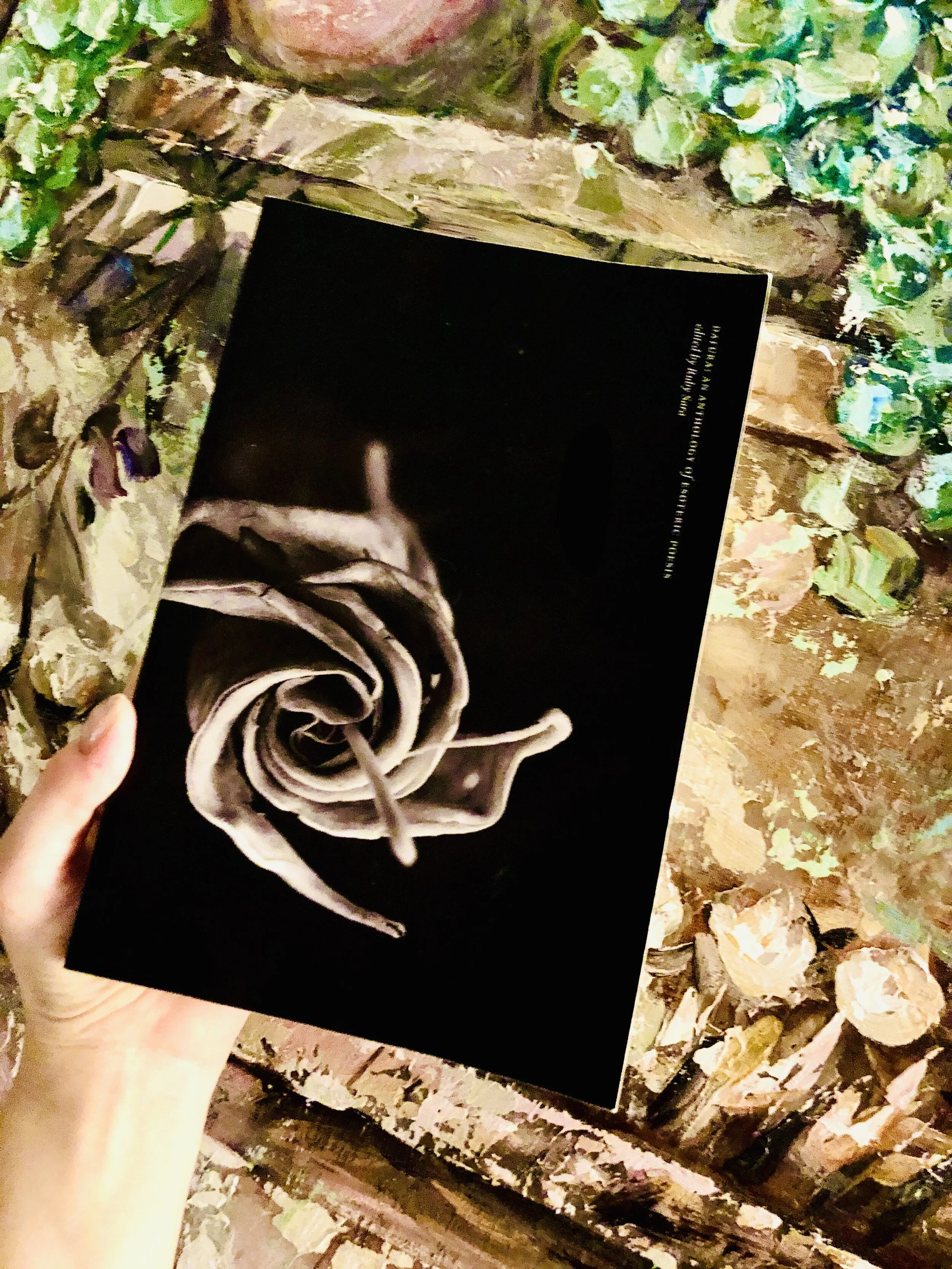
BY LISA MARIE BASILE
A gift from a good friend, this anthology of esoteric poetry — Datura: Explorations in Esoteric Poesis, published by Scarlet Imprint and edited by Ruby Sara — this collection sits beside my bed, waiting to be picked up on nights of ritual, contemplation, and big full moon energy.
It’s not a new collection; it was published in 2010, its intro written, “on the cusp of Imbolc/Candlemas, the season of poetry and fire, when the Pagani lean their hearts toward Bridhid, that goddess and patron saint of poetry….” (Fitting, I think, as I share this in early Autumn, the nights getting colder — more of us turning toward art and the sacred as we close the proverbial and literal door to the outside world).
Including 26 poets’ work (and many essays) from writers across occult communities, this really is a conjuring of that which stirs within us — that cosmic inspiration, that invisible Spirit o creation, and that holy drive to channel that which comes from some realm we cannot see.
This is a book of literary prayer and magic — a holy text in my temple of wordcraft — for poetry conjures the liminality of spirit and spell, and the high, rich emotion of devotion and sacredness.
Here are some snippets of the work included. I recommend you find the book and order it.

Monique Quintana is a Xicana from Fresno, CA, and the author of the novella Cenote City (Clash Books, 2019). Her short works have been nominated for Best of the Net, Best Microfiction, and the Pushcart Prize. She has also been awarded artist residencies to Yaddo, The Mineral School, and Sundress Academy of the Arts. She has also received fellowships to the Community of Writers, the Open Mouth Poetry Retreat, and she was the inaugural winner of Amplify’s Megaphone Fellowship for a Writer of Color. You can find her @quintanagothic and [moniquequintana.com]
Read MoreBY LISA MARIE BASILE
For the entire month of October, I will be posting daily to Luna Luna about all things magical, witchy, spooky, and spoopy. From books and tarot decks to films and random research or rituals I happen upon, I’ll be offering up a little taste of the shadow.
Today, it’s the Art of the Occult: A Visual Sourcebook for the Modern Mystic by the mega-talented S. Elizabeth.
I’d love to share a few things before I get into the book; I’ve admired S. Elizabeth for a while now for plenty of reasons; her Instagram itself is a curatorial delight of idea, curiosity, esoterica, and art — a veritable treasure-trove of pleasures and ghastly bits and beautiful things that remind you that being alive is an act of deliciousness.
But it’s her writing that truly gets me. S. Elizabeth’s digital diary (a literary garden of glory) Unquiet Things is a space I’ve found myself sifting through over many, many a night in bed with tea. From scent magic to autumnal soups to lullabies and darkness, she writes with such depth and fullness about everything; because of this, there is no doubt that any book she puts together will be a well of wonder and research and shadowy goodness. Oh, and you can also find her magical words at Haute Macabre, Death & The Maiden, and more. She’s also the co-creator of The Occult Activity Book Vol 1 and 2.
The Art of the Occult is a visual journey through time’s spiritual, magical, and otherworldly art and experiences.
From the description:
“From theosophy and kabbalah, to the zodiac and alchemy; spiritualism and ceremonial magic, to the elements and sacred geometry – The Art of the Occult introduces major occult themes and showcases the artists who have been influenced and led by them. Discover the symbolic and mythical images of the Pre-Raphaelites; the automatic drawing of Hilma af Klint and Madge Gill; Leonora Carrington's surrealist interpretation of myth, alchemy and kabbalah; and much more.”
SIGH. Even better? It features little-known artists and marginalized artists — people whose names and works aren’t often cited or seen.
I’m waiting with bated breath for this book to arrive upon my doorstep. What a treasure.